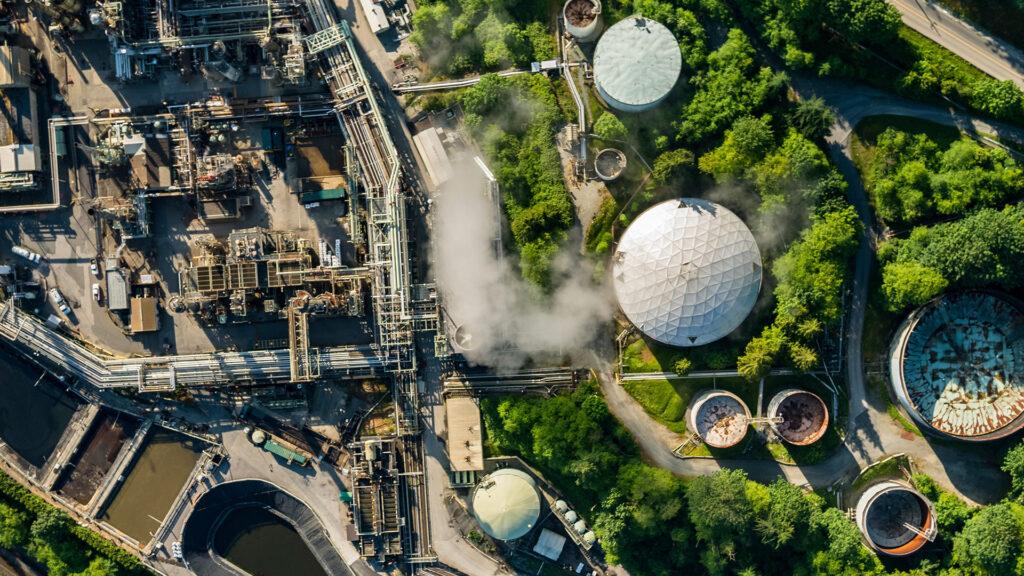
The SRI-funded startup will scale up a novel SRI-invented polymer membrane to feed the world’s need for hydrogen.
Hydrogen is poised to play a critical role in the global energy transition from fossil fuels to renewables. The challenge: It’s not so easy to isolate. Entrepreneur Joe Sawa became more aware of that challenge as he worked on hydrogen projects at Shell and later pursued his MBA at UC Berkeley’s Haas School of Business, with a focus on energy and sustainability.
Sawa’s interest in hydrogen separation came into focus when he met Milad Yavari, a research engineer at SRI who had developed advanced hydrogen separation membranes that perform exceptionally well in real-world conditions. Yavari was part of a team that had developed advanced hydrogen separation membranes that perform exceptionally well in real-world conditions. SRI’s membrane development team had not only identified a polymer uniquely suited to hydrogen separation, but had also fine-tuned the manufacturing process and successfully field tested it, investing 15 years of focused R&D supported by the U.S. Department of Energy.
The conversations between Sawa and Yavari eventually led to SRI’s latest spinout, Membravo, which joins a roster of other innovative SRI spinouts that includes LeoLabs, Xona, Kurve, and NinjaTech.
“Our field testing has demonstrated excellent performance and durability. We’re currently fundraising, expanding our team, and engaging in pilot project discussions with some of the world’s largest energy companies.” — Joe Sawa
A massive amount of hydrogen (worth billions of dollars) is burned as industrial waste every year because it cannot be cost-effectively separated from other gasses using existing technologies. Financially, it’s a significant missed opportunity, and it also produces unnecessary CO2 emissions. To continue growing the hydrogen market, we need better methods of cost-effectively isolating hydrogen within existing industrial infrastructure.
Sawa and Yavari recognized an opportunity to potentially save heavy industries billions of dollars while significantly reducing carbon emissions. Membravo’s next-generation polymer membranes act as filters, allowing hydrogen to pass through, but blocking other gases. They are specifically engineered to withstand the extreme heat, pressure, and harsh chemicals of industrial environments.
The commercial pathway for this technology took shape when Sawa joined SRI’s entrepreneurship-in-residence program, which provides access to advisors, market data, laboratory and office facilities, and SRI intellectual property as well as commercialization support through the SRI ventures group. Over the course of nine months, Sawa and Yavari conducted customer interviews to validate the market, developed a business strategy and execution plan, and manufactured membrane units to prepare for customer testing.
“Being an entrepreneur-in-residence at SRI has been amazing,” said Sawa. “SRI’s ecosystem of engineers, scientists, and entrepreneurs know how to get innovation done.”
Discussions with potential customers identified applications for these membranes across nearly every process involving hydrogen production, consumption, distribution, and storage. These enthusiastic responses spurred Sawa and Yavari — with support from the SRI ventures team — to spin out the company as an independent startup.
“I’m incredibly excited to continue building Membravo,” said Sawa. “Our field testing has demonstrated excellent performance and durability. We’re currently fundraising, expanding our team, and engaging in pilot project discussions with some of the world’s largest energy companies, all of which will help us scale Membravo’s technology and contribute to a cleaner, more efficient future for our planet.”
To learn more about Membravo and other SRI-backed startups, connect with our SRI ventures team.
This material is based upon work supported by the Department of Energy National Energy Technology Laboratory under Award Number DE-FC26-07NT43090.



